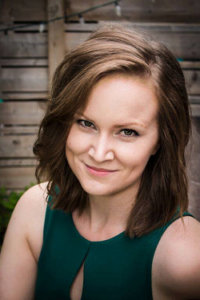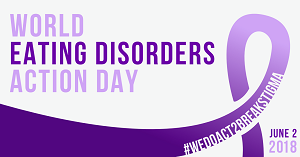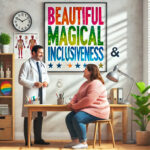Breaking eating disorder stigma starts at home – let’s start by addressing the stereotypes
Breaking eating disorder stigma starts at home – let’s start by addressing the stereotypes

By Kelly Boaz
One day, a man asked me what I do for a living. When I said I was a nutritionist specializing in eating disorders, he snorted and responded, “Well that’s easy. Just tell those girls to get over themselves and eat!”
While this response was infuriating and wildly inaccurate, it wasn’t surprising. To the outside world, eating disorders are a choice made by vain teenaged girls who just want to be thinner. In reality, nothing could be further from the truth.
The people I see in my practice are all ages, all genders, all races, all sizes, with one thing in common: they’re in a lot of pain. Some of the pain is caused by the eating disorder. Some of the pain predates the eating disorder, and relies on the eating disorder to lessen its sting. Either way, the pain is not a choice. And it isn’t exclusive to one population.
The stigma about who gets eating disorders keeps people from seeking help. It creates shame in those affected, and only makes the problem worse. And, because the stereotype says that only teenage girls get EDs, they make up the majority of people showing up in treatment. As a result, treatment and research is primarily geared towards this group.
One of the great things to come out of that research is Family Based Therapy. It has shown great promise for the treatment of eating disorders. Unfortunately, this model, currently presented as the way to treat eating disorders, isn’t a possibility for most of the clients I see. FBT relies on family involvement, and often requires one parent to stay home with the child full time. Unfortunately, that isn’t accessible to most people who aren’t wealthy, or to those who don’t have an involved family. And, it just isn’t a possibility for most adults, regardless of demographic or family situation.
As long as we’re only looking at eating disorders through the very stereotypes we’re trying to fight, a lot of people will be left out of the conversation. Treatment will continue to be exclusionary, and the research will still focus on those same groups.
No two clients that I see are alike. Their eating disorders seldom respond to the same methods. If we want the public to see eating disorders as more than a wealthy white teenager’s disease, we have to start creating treatment options for more than that demographic. Breaking stigma starts at home. Let’s work together to be the change we want to see in the world. It’s a beautiful, diverse world. We need to do better at reflecting that.
About Kelly
Kelly Boaz is a Toronto-based holistic nutritionist (CNP) specializing in eating disorder recovery and food freedom. After winning her 17-year battle with anorexia, Kelly turned her life’s focus to helping others do the same. She is also a writer and speaker (TEDx, TDSB), raising eating disorder awareness, and helping people heal their relationship with food and their bodies. Kellyboaz.com @kelly_boaz
 Take part in World Eating Disorders Action Day
Take part in World Eating Disorders Action Day
World Eating Disorders Action Day on June 2, 2018 is a grassroots movement designed for and by people affected by an eating disorder, their families, and the medical and health professionals who support them. Uniting activists across the globe, the aim is to expand global awareness of eating disorders as genetically linked, treatable illnesses that can affect anyone. The Third Annual #WorldEatingDisordersDay will take place on June 2, 2018 with a focus on breaking stigma about Eating Disorders. #WeDoAct2BreakStigma.
Join the virtual campaign on social media and host a local event to share information and advocate for policy change to ensure access to evidence based treatment for all affected.





